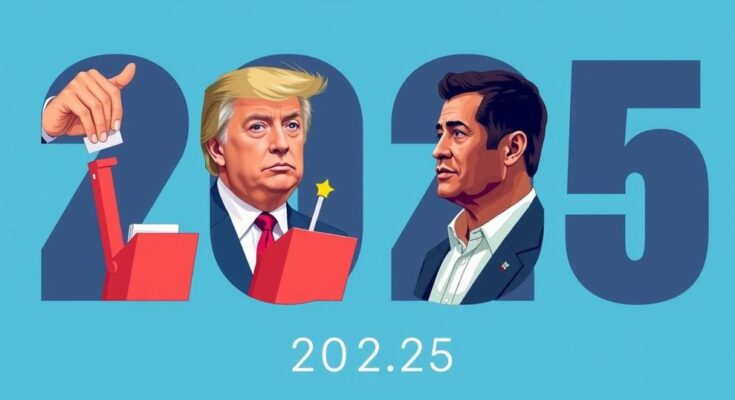In 2025, pivotal elections in Belarus, Germany, the Philippines, Canada, and Chile will address issues like authoritarianism, political fragmentation, and economic challenges. Each country faces unique circumstances that will impact the electoral outcomes and future governance, against a backdrop of rising global tensions.
In 2025, significant elections will unfold across five nations, albeit with a backdrop different from the prolific electoral season of 2024. These elections will occur amidst challenges such as inflation, the rise of populist movements, and geopolitical repercussions stemming from conflicts in Europe and the Middle East.
In Belarus, Alexander Lukashenko is set to seek his seventh term in an election lacking credible opposition following mass protests and continued repression. In Germany, an early federal election is necessitated by the recent collapse of the ruling coalition, with Chancellor Olaf Scholz facing declining popularity and economic troubles as he battles to maintain control over a fragmented parliament.
The Philippines will conduct midterm elections, which are seen as a referendum on President Ferdinand Marcos Jr.’s administration, as he seeks to consolidate his hold amidst challenges from Vice President Sara Duterte. Meanwhile, Canada may encounter early elections due to Prime Minister Justin Trudeau’s precarious political position against rising economic discontent and opposition from Conservative leader Pierre Poilievre. Lastly, in Chile, a presidential election is on the horizon with the incumbent barred from re-election. The political landscape is volatile, with rising crime concerns and a fragmented ruling coalition facing a resurgent opposition.
The landscape of elections in 2025 is particularly noteworthy due to the disparate political environments in these five countries. Each country will face unique challenges related to governance, civil liberties, and economic negotiations. The situation in Belarus reflects a concentrated authoritarian regime; Germany is attempting to navigate complex economic pressures; the Philippines portrays a precarious power struggle; while Canada’s elections may redefine its political identity under economic distress. In Chile, the transition from Boric’s presidency indicates a pivotal political moment that could shift the left-right balance dramatically.
In conclusion, the elections slated for 2025 in Belarus, Germany, the Philippines, Canada, and Chile signal critical moments for governance and political stability in each nation. These elections are not only indicative of domestic concerns such as economic management, political legitimacy, and social unrest but also reflect broader trends affecting global politics. As these elections unfold, they will play a pivotal role in shaping the future governance and policy directions in these countries.
Original Source: theconversation.com




